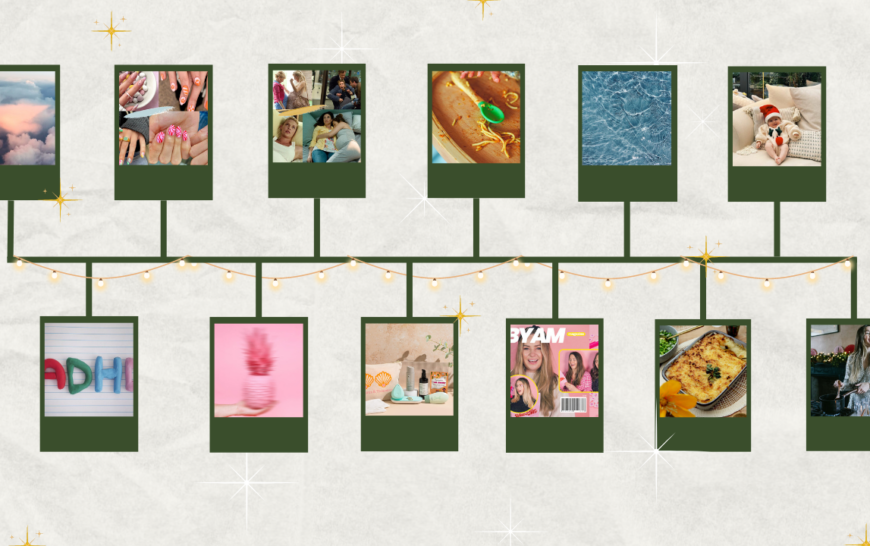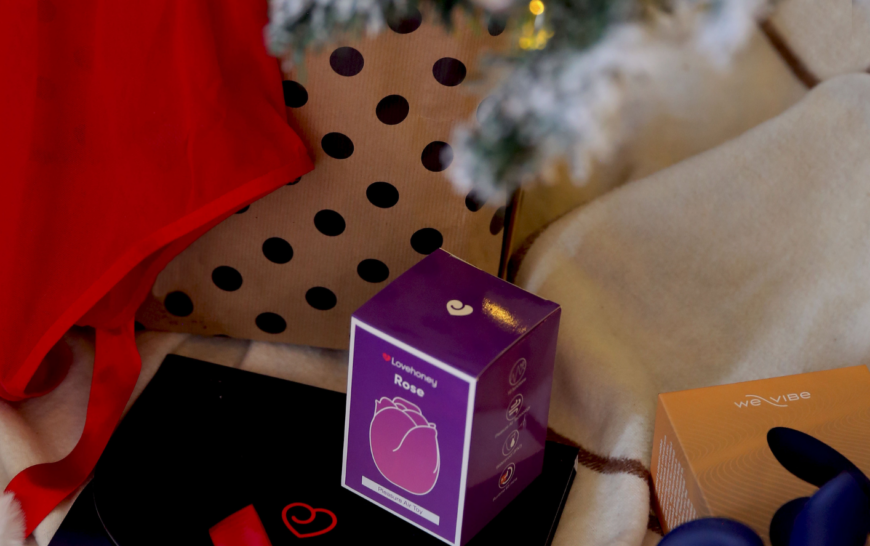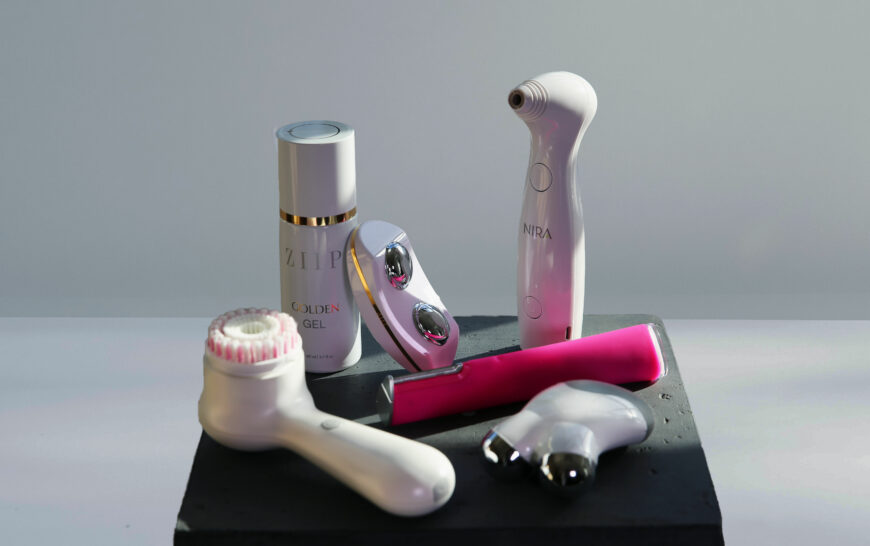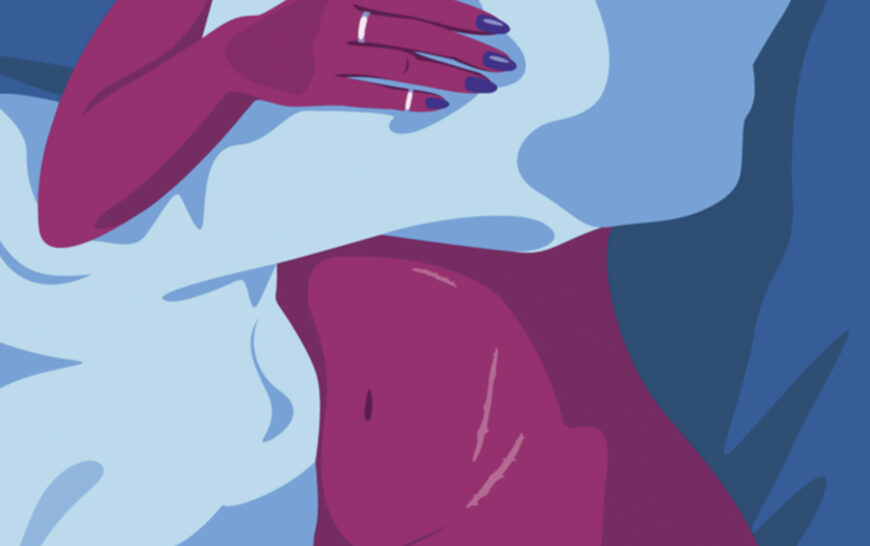
Time to Break Up With Diet Culture: The Dangers of Fad Money Making Diets
The year is 2022 and it appears the mainstream media and diet companies specifically are yet to cotton on to the fact that talking about weight loss in the period directly after Christmas (or the other 11 months of the year for that matter) can be really damaging to the mental health of so many.
If waking up in darkness wasn’t enough to prompt Airbnb hunting for destinations literally *anywhere* but here, it turns out we can’t even run to social media as a usual form of escapism in the New Year. Why, you may ask? Diets. Diets everywhere!
The year is 2022 and it appears the mainstream media and diet companies specifically are yet to cotton on to the fact that talking about weight loss in the period directly after Christmas (or the other 11 months of the year for that matter) can be really damaging to the mental health of so many.
Who knew this concept was so hard to fathom! It’s natural after a period of indulgence, aka Christmas, to intuitively feel like change is what your body may need, be it getting out of the house more and adding in some extra greens to your meals, but the pressure to ‘glow up’, transform your body and never touch a carb again simply ain’t it. Practising new habits intuitively is the aim, but sadly the diet companies of the world that profit from weight loss tend to have a different metric for success, and if you’ve been thinking about ending this toxic relationship, we’re here to encourage you to go through with the diet culture break up for good!
But what exactly is diet culture? The term has become part of our modern-day vernacular, increasingly sparking debate over the past few years, but what does this clickable phrase actually mean, and how does it impact our daily lives?
Isa Robinson, nutritionist and previous disordered eating sufferer, explains that “As a rule of thumb, diet culture is anything that equates health and beauty to slenderness and links food and eating to morality. It’s the system that tells you that you are what you eat, that you need to earn your food and that you “should” spend time, money and effort into making your body smaller or stronger or look a certain way, or that you are “good” when you eat certain types of foods, and “bad” when you eat others.”
If tomorrow, women woke up and decided they really liked their bodies, just think how many industries would go out of business
Dr Gail Dines
Diet culture and beauty standards, in general, are sneaky, they change along with trends (be it small boobs one decade and big the next, the BBL aesthetic vs Kate Moss in the 90s), meaning we’re constantly chasing an ideal that is impossible to reach. Once we finally get close to achieving what is considered ‘beautiful’, the goalposts are moved, and once more we turn to spending money on cosmetic procedures, putting effort into diets and workout routines to build a bigger bum or get rid of a thigh gap (remember this era of the internet?) until our whole world is focused upon meeting a criteria that will soon shift again.
Diet companies capitalise on this system of beliefs, with their messaging and intentions focused upon helping people lose weight in ways that aren’t sustainable, ensuring that their customers will likely be dieting for a long time, and become reliant on the groups and mechanisms they often promote as healthy ‘lifestyle changes’.

So, how can you spot diet culture in the wild?
- Labelling foods as good or bad
- The idea of ‘cheat days’
- The concept of needing to burn off a big meal e.g. Christmas dinner
- Complimenting weight loss
- Eliminating food groups in the name of ‘health’
- Detox/skinny teas and appetite suppressants pills being readily available in pharmacies/shops
Not so fun fact: did you know the diet industry is worth $60 billion, largely due to the 80% failure rate of these diets, and the fact the majority of dieters will regain the weight, plus more, within 12 months. This is because diet-induced weight loss is accompanied by several physiological changes, including alterations in energy expenditure, metabolism and hormone pathways involved in appetite regulation, meaning maintaining weight loss becomes difficult and mentally exhausting. It means dieters may have to continually lower their calorie intake, and can then lead to bingeing large volumes of food thanks to the shame > restrict > binge > shame > restrict > binge cycle that can be triggered when our bodies are in starvation mode.
One of our favourite anti-diet writers and activists Megan Jayne Crabbe (formerly Body Posi Panda) has endless resources on this very subject, and in her 2017 book Body Positive Power, she explains exactly why dieting based upon restriction is counterintuitive, ineffective in the long run, and the means by which companies can profit from its only short term benefits:
“We are biologically programmed not to stick to diets. Way back when we were hunter-gatherers, food could get scarce at times. The only way to survive famines was to have plenty of juicy fat stores that the body could use for energy when it got desperate. Thanks to natural selection we still have that same survival technique, meaning that when we experience starvation (and many diets prescribe exactly that), our bodies hold onto their fat stores extra tightly by slowing down our metabolism. If you do manage to lose body fat, you disturb the balance of hormones produced by adipose cells that regulate hunger and fullness signals in the brain. In other words, lose weight, and you start feeling even hungrier than usual, your metabolism is slow, and your body will start fighting back against the diet why? Because your body already knows the weight it wants to be.” Intuitive eating, meaning recognising your hunger and honouring it, is one of the best ways we can create a healthier relationship with ourselves and food, as we give our bodies what they need and eliminate restrictions that only serve to feel like punishment.
Roberta Pollack, social historian and author commented in her 1991 book Never Too Thin: “anorexia nervosa could be called the paradigm of our age, for our creed encourages us all to adopt the behaviour and attitude of the anorexic. The difference is one of degree, not of kind.” It seems that although 30 years may have passed since Roberta’s book was published, diet culture’s hold on us is still going strong.
If you’re sitting here thinking, “But I want to lose weight and think I would feel great if I did” then that’s cool too!
Let’s pause for a moment though. If you’re sitting here thinking, “But I want to lose weight and think I would feel great if I did” then that’s cool too! Losing weight by exercising to feel strong and empowered, and eating in a way that helps you feel like the best version of yourself is 100% okay, because after all, body autonomy exists and having agency to make decisions about your health and appearance is all on you. Losing weight in itself is not inherently bad, but diet culture so often overlaps with this choice, meaning the lines become increasingly blurred. It’s totally possible to be body positive and want to lose weight, but when the idea of thinness as the elite becomes intertwined with this, we know diet culture has had its wicked way.
Because diet culture has gained such a bad rep in the era of body positivity/neutrality and Instagram Explore pages showing the marginalised bodies once hidden from the media, many of the old school fad diets companies have changed their tactics. Companies such as Slimming World and WW brand their methods of weight loss as ‘lifestyle’ and ‘wellness changes’, disguising what is still a restrictive means of eating as something more palatable in today’s more progressive society.
But does a company advertising “No Blue Monday here! Get 50% off with £0 upfront. PLUS, use promo code 10EXTRA at checkout for an additional £10 off!” really have our best interests at heart? In implying that the January blues can be solved by losing weight, it only serves to reinforce the notion that life is better when you’re slimmer, that you’ll be happier when you can fit back into your pre lockdown jeans, and that you wouldn’t be feeling down in the dumps if only you were a dress size smaller. We call b*llshit.
But although it seems that all hope is lost, that it’s impossible to beat down this beast of an industry that has such a hold over our perceptions of ourselves, try to feel safe in the knowledge that things are changing, slowly but surely. If you search ‘body positivity’ on Google (as of January 2022) 1,270,000,000 results appear.
If you take to Spotify and search ‘body neutrality’, you’ll be met with hundreds of podcast episodes and suggested listening tools to support a journey in finding peace in your appearance. If you take to Instagram, TikTok, YouTube or even Facebook (amongst the posts from Auntie Karen and the girl from secondary school you barely remember) you’ll find post after post encouraging kinder attitudes towards ourselves and our bodies that deserve nothing but respect for how they carry us through life. In the second half of its financial year in 2019, Weight Watchers (now known as WW) dropped 600,000 subscribers, and what a joy it is to wake up to the idea that our bodies were never the problem in the first place.
If you’re ready to ditch diet culture for good and foster a healthier relationship with your self-image, then remember the conversations, media sources and images you surround yourself with on a daily basis all contribute to this. In many senses, you are what you read. Enter: A Spoonful of Alice.
Anti-diet activist, slimming world survivor and food freedom advocate, her Instagram page is a safe haven for anyone that has struggled with the restrictions of dieting or felt the pressure to be slimmer, and we couldn’t love her more! We spoke to Alice about the pressure the new year can bring when it comes to narratives around detoxing and ‘glowing up’, and there’s no better time than the present to reclaim your body as the perfect size just the way it is…
How do you think social media contributes to a feeling of needing to diet in the new year?
While I do think there’s been a slight shift away from the ‘new year, new me’ rhetoric of previous Januarys, social media makes it *very* difficult not to compare ourselves to our peers as we scroll through their highlight reel. Oh, and adverts! My feed is full to the brim of adverts promoting diet companies at the moment (I’m looking at you, Noom…)
What can people do if they feel pressured to restrict their eating in January and beyond? What are some easy self-care tips for being kind to our minds and bodies?
Instead of detoxing your body, detox your social feeds by unfollowing (or muting) anyone who makes you feel like you aren’t good enough. Then, follow people of all shapes and sizes – it’ll help you diversify your idea of beauty!
There’s nothing wrong with setting health-related goals, but choose things that have nothing to do with weight – and remember that mental health is health too.
Gaining weight is often made to feel like a personal failure in our society. What do you think the reason for this is and how can we challenge this belief system?
We’ve grown up in a society governed by diet culture, meaning that we’ve been taught to equate being thin with being beautiful, healthy and worthy of love. While none of these things are true, it’s no wonder that we place a LOT of importance on the size of our jeans. We’re also led to believe that we have far more control over our weight than we actually do – which is why it can feel like when we’ve gained weight, we’ve failed.
The best way to challenge this belief is to fight against weight stigma whenever we can. It’s a systemic issue, which means it runs VERY deep – but advocating for those in bigger bodies than you and challenging your own beliefs about weight are great places to start.
What long term issues can arise from taking part in fad diets/diet programmes in terms of someone’s relationship with food?
Despite many of them claiming not to, all fad diets and weight loss programmes involve restricting what you eat. Whether you’re counting calories or syns, restrictive behaviours can quickly develop into disordered eating habits that are VERY hard to shake – even turning into full-blown eating disorders in some cases.
Do you believe companies that profit from weight loss ever have the best interest of their customers at heart?
It’s difficult to believe that any for-profit company is concerned with anything over making money, and diet companies are no exception. They are businesses, at the end of the day!
If they really cared about what was best for their customers, they’d make it very clear that weight loss isn’t healthy for everyone – and that their plans involve food restriction which can lead to eating disorders, instead of hiding behind slogans like ‘it’s not a diet, it’s a lifestyle change!’
For those coming from diet groups who have never heard of intuitive eating, how would you best describe this practice and how to switch to this way of honouring your body and hunger?
Intuitive Eating is the exact opposite of a diet – it’s a framework designed to help you heal your relationship with food, and it has nothing to do with weight loss. It teaches us to eat when we’re hungry, stop when we’re full and choose food that makes us feel good – like we did as infants (before diet culture got involved!)
If you want to learn more, I’d recommend a book called ‘Just Eat It’ by Laura Thomas – she taught me everything I know.
What are some small and manageable steps someone could take to begin to reject diet culture?
Get rid of your scales, calorie counting apps and anything else you use to track your weight or eating habits.
Donate any clothes that no longer fit instead of saving them ‘to slim back into’.
Stop eating low fat, sugar-free or ‘diet-friendly’ foods unless you genuinely enjoy them.
Read books like ‘Body Positive Power’ by Megan Jayne Crabbe and ‘Food Isn’t Medicine’ by Dr Joshua Wolrich.
Listen to ‘Maintenance Phase’ – a brilliant podcast dedicated to debunking the myths of diet culture.
Be kind to yourself, because you’re bloody amazing just as you are.
You can find Alice on Instagram at @aspoonfulofalice!







